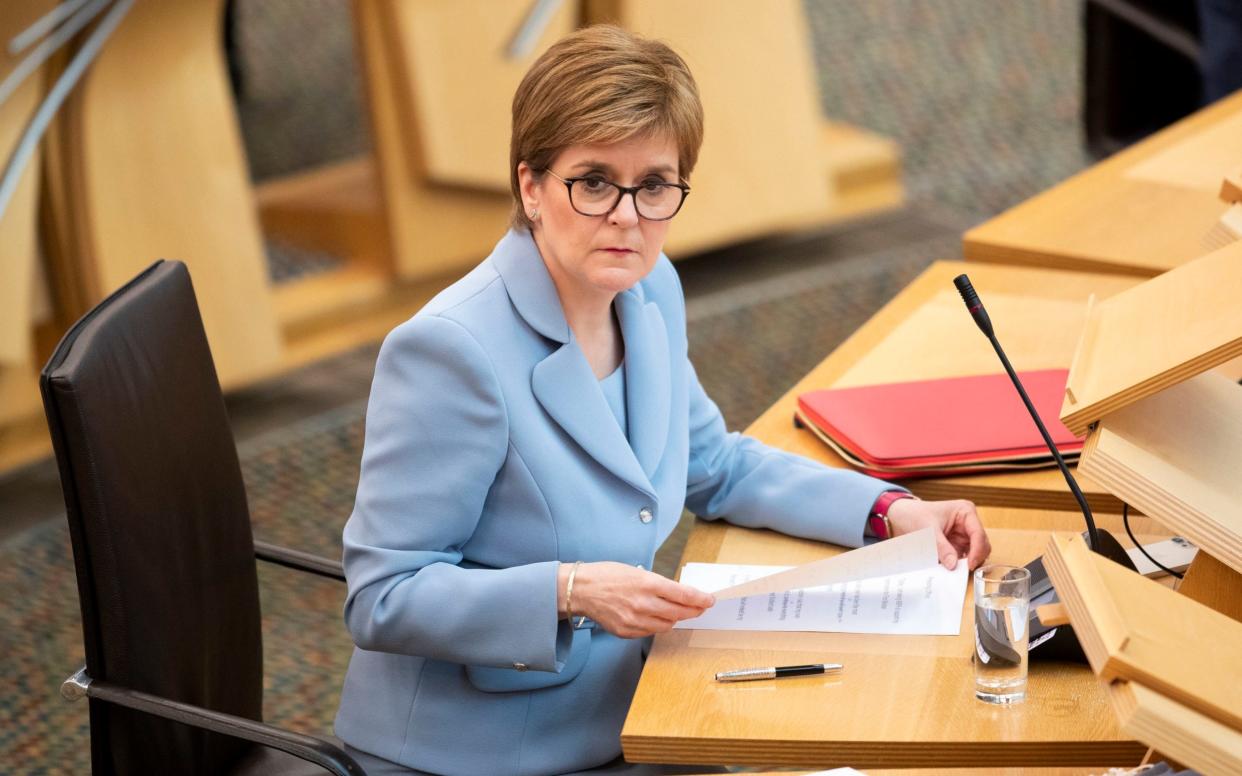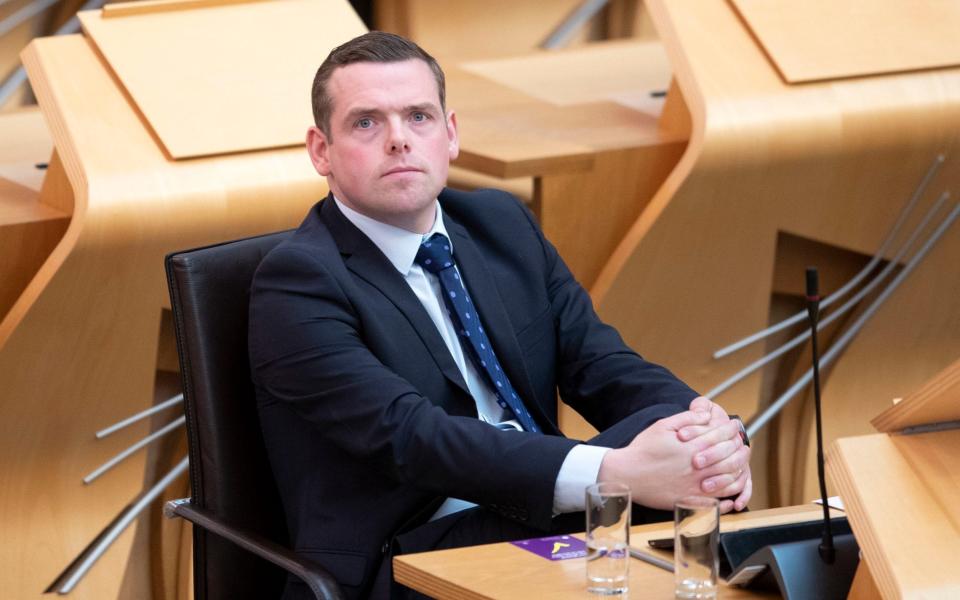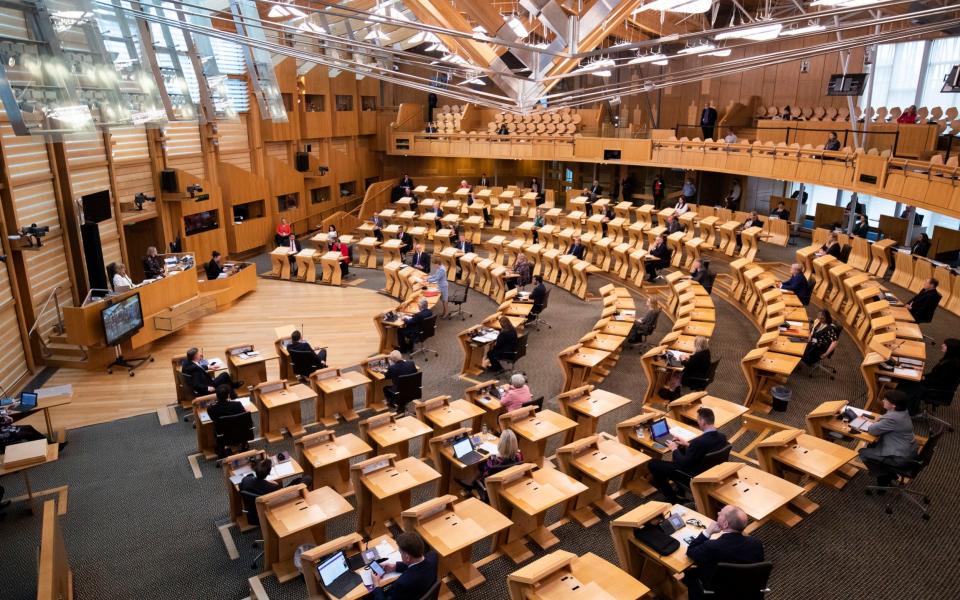Nicola Sturgeon formally elected First Minister with demand for parties to unify behind referendum

- Oops!Something went wrong.Please try again later.
- Oops!Something went wrong.Please try again later.
- Oops!Something went wrong.Please try again later.
Nicola Sturgeon has urged Holyrood's opposition parties to unite behind her call for a second independence referendum after the immediate Covid health crisis has passed as she was formally elected First Minister.
The First Minister said that the mandate she received for a separation vote from voters in this month's election, in which the SNP gained a seat but fell short of a majority, must now be "acknowledged and respected".
The Tories, Labour and Liberal Democrat leaders urged her to abandon "the arguments of the past", arguing they would only divide the country during the pandemic, and instead work across the chamber to deliver recovery.
Douglas Ross, the Scottish Conservative leader, pledged to "fight them every step of the way" if the SNP started to put another separation vote ahead of focusing on the "national mission to get us all through this."
But Ms Sturgeon said that "unity is best achieved" on Scotland's constitutional future by the Unionist parties "agreeing that the only legitimate way, ultimately, to resolve difference is through democratic means."
She argued that them agreeing to her plan for a referendum by the end of 2023, when Scotland is still recovering from the pandemic, would display "mutual understanding" and "respect for the power of democracy."

Her speech came shortly after the Scottish Parliament formally voted for her to continue as First Minister following symbolic challenges from Mr Ross and Willie Rennie, the Scottish Liberal Democrat leader.
Her candidacy for the role was backed by the 64 SNP MSPs, with 31 Tories voting for Mr Ross and the four Lib Dems for Mr Rennie. A further 28 Labour and Green MSPs abstained.
Ms Sturgeon's nomination went forward to the Queen for approval, before she is sworn in at the Court of Session on Wednesday.
She said her "first and driving priority" would be to lead Scotland through the Covid-19 pandemic and into recovery for the economy, the health service and society.
However, she said there must be a separation referendum as part of "the debate all countries must have about how we can build the best possible post-pandemic future".
Referring to Unionist parties' opposition to another vote, Ms Sturgeon said: "Unity is not achieved by pretending that genuine differences of opinion don't exist or that one side of a debate has no right to be heard."

Mr Ross said the Tory benches would back the SNP government if it "applies itself 100 per cent" to recovering from the pandemic, as voters demanded.
"But if they deviate from that task, if they put political priorities ahead of Scotland’s interests; if they waste time in this chamber on old arguments instead of constructive delivery then we will fight them every step of the way," he said.

